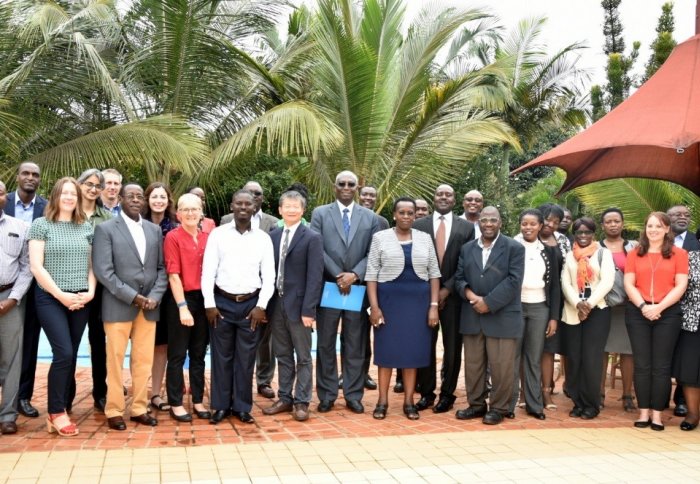Ramping up efforts to control and eliminate schistosomiasis in Uganda

Delegates met between 30-31 August in Kampala, to discuss progress and next steps in the control and elimination of schistosomiasis.
Interventions to control schistosomiasis have been ongoing in the country for over 15 years and great progress has been made so far. However, the Ministry of Health (MoH) of Uganda, with the support of partners including the Schistosomiasis Control Initiative (SCI), met to re-invigorate efforts and further drive momentum towards elimination as the country’s schistosomiasis programme enters its advanced stages.
“The topography of Uganda presents a unique situation where the country faces continual battles with highly endemic populations around the shores of the Great Lakes, but is also on the brink of eliminating schistosomiasis in areas that are now classed as low endemic after multiple treatment rounds”, says Jane Whitton, SCI’s Programme Advisor for Uganda.
To best utilise the evidence from numerous research studies and programme monitoring surveys, experts were called upon to discuss the way forward and provide guidance to the MoH’s schistosomiasis programme.
Representatives from SCI, Johns Hopkins University and Makerere University, presented their findings across a range of research topics, including: surveys highlighting the burden of disease in adults; health education social media campaigns to influence behaviour change; the role of the Community Drug Distributor and importance of social networks in the success of treatment programmes; persistence of schistosomiasis-related morbidity; and disease risk mapping surveys.
In addition, representatives from The World Health Organization presented methods of snail control and the importance of WASH interventions, particularly in areas of continual high transmission.
Utilising the research findings presented, delegates worked together to develop bespoke strategies to improve coverage in hard-to-reach populations, mapping strategies to ensure treatments get to those who need it and a treatment strategy for low- and high-endemic communities.
Dr Edridah Tukahebwa, the NTD Programme Manager for Uganda and her team at the MoH will review the expert guidance from the meeting and develop a national schistosomiasis strategy in conjunction with their schistosomiasis programme partners, to help achieve Uganda’s objective to eliminate schistosomiasis by 2020.
Article text (excluding photos or graphics) © Imperial College London.
Photos and graphics subject to third party copyright used with permission or © Imperial College London.
Reporter
Press Office
Communications and Public Affairs
- Email: press.office@imperial.ac.uk
